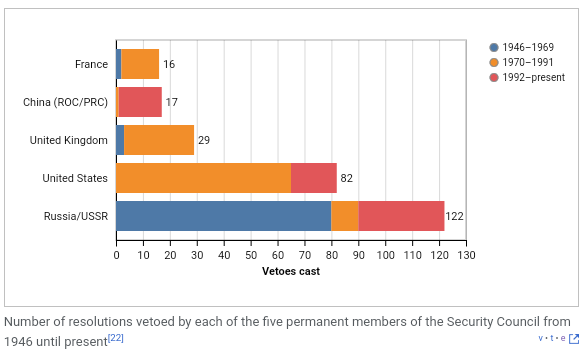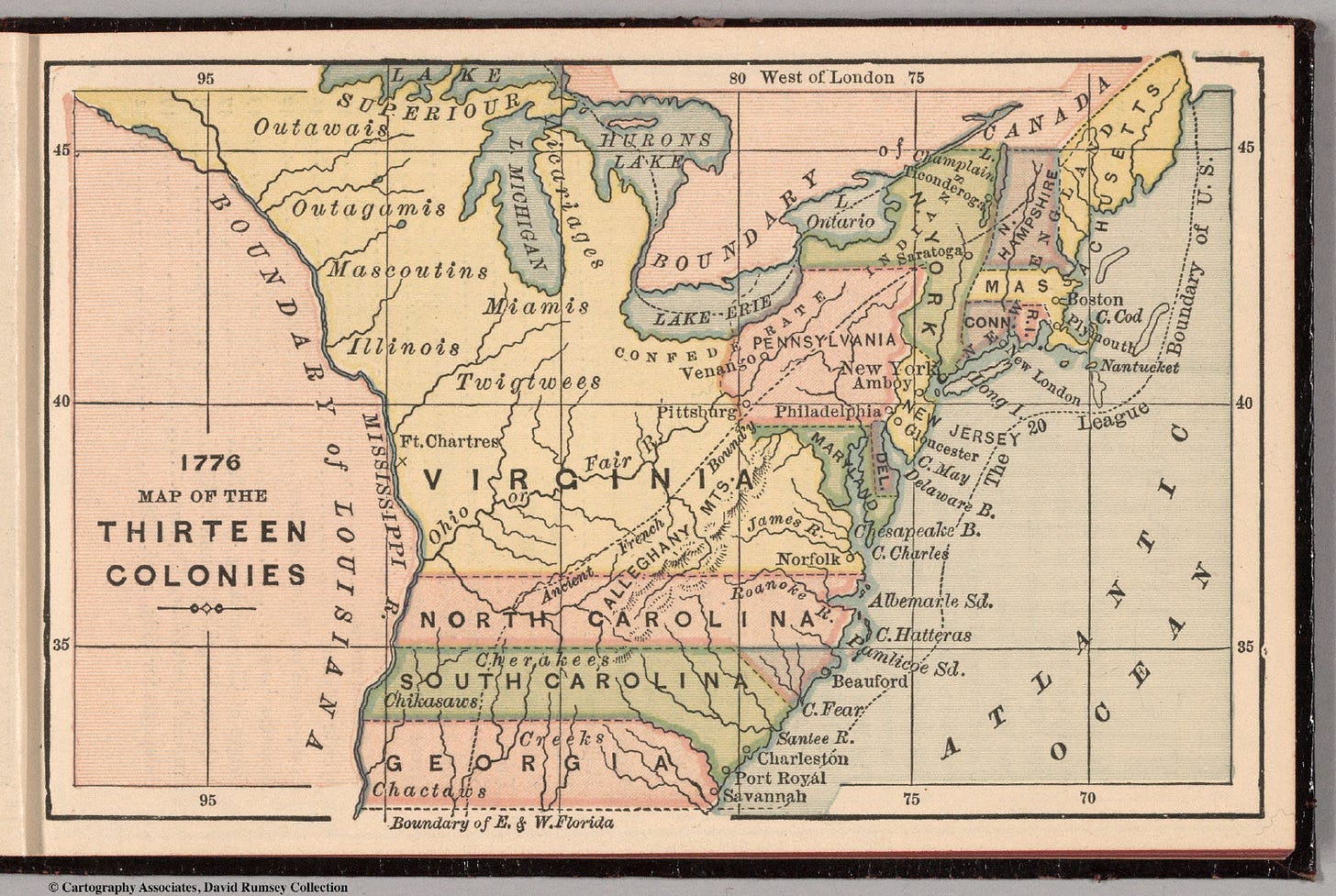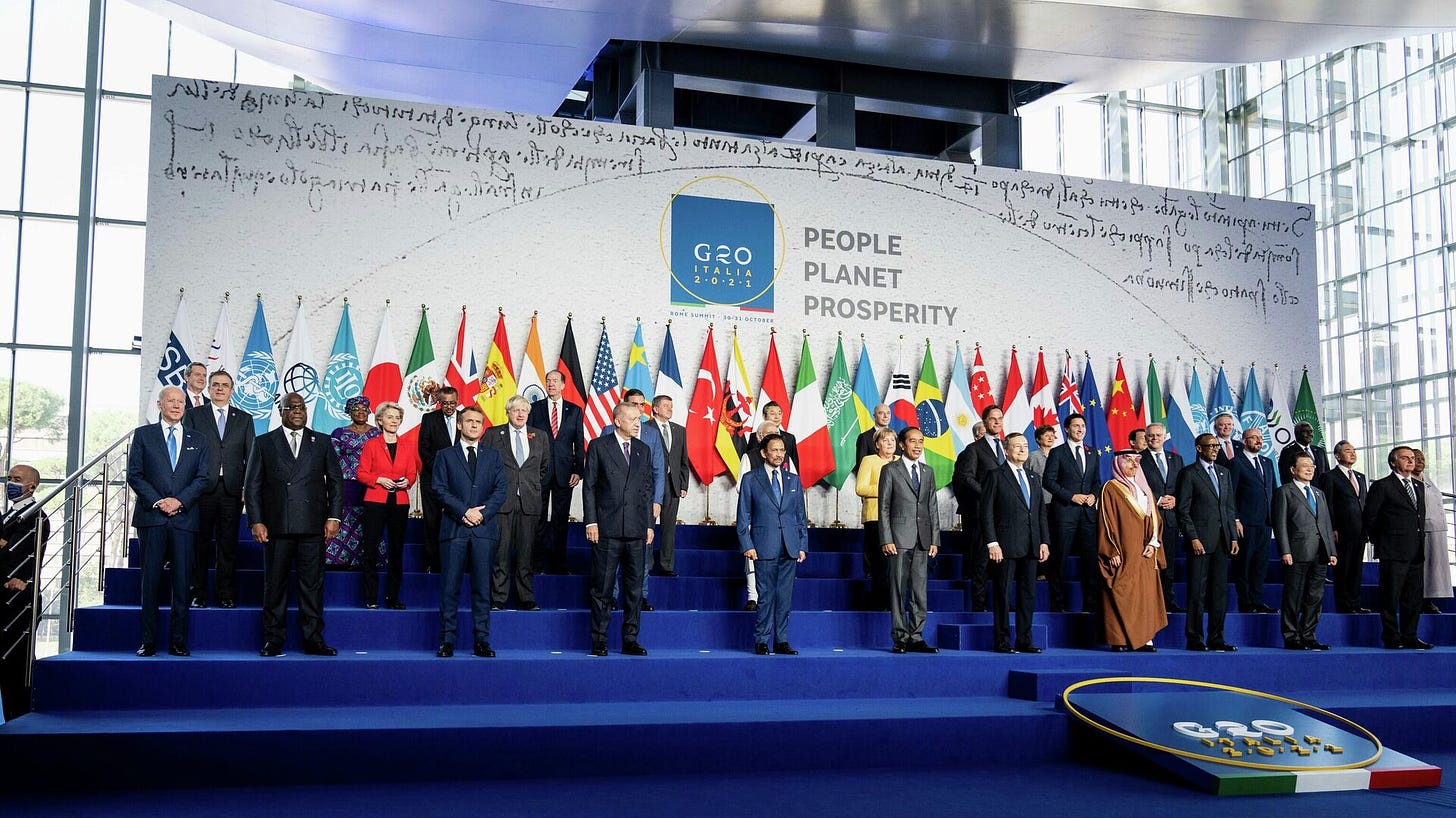The Frenemy of My Frenemy (is still my frenemy)
Listen to an audio reading of this article:
“There are no true friends in politics. We are all sharks circling, and waiting, for traces of blood to appear in the water.”
~ Alan Clark, British minister under the Thatcher administration (1928-1999)
The nation state system is generally considered to have begun in Westphalia, Germany in 1648 as a result of the signing of two peace treaties that ended the murderous Thirty-Year War that left an estimated 5 to 8 million dead. Though scholars disagree over whether this was the beginning of the modern nation-state system of international relations, all tend to agree with the Westphalian principle, enshrined in the United Nations charter: “nothing ... shall authorize the United Nations to intervene in matters which are essentially within the domestic jurisdiction of any state.”
Henry Kissinger, the quintessential globalist, summed it up in his book of realpolitik, World Order: “The Westphalian peace reflected a practical accommodation to reality, not a unique moral insight. It relied on a system of independent states refraining from interference in each other’s domestic affairs and checking each other’s ambitions through a general equilibrium of power. No single claim to truth or universal rule had prevailed in Europe’s contests. Instead, each state was assigned the attribute of sovereign power over its territory. Each would acknowledge the domestic structures and religious vocations of its fellow states and refrain from challenging their existence.”
After the Cold War, the non-intervention principle began to be loosened, in favour of an international consensus, of mostly western nations, that it was justifiable to intervene in the case of human rights abuses. Russia has consistently used their veto power in the United Nations Security Council to veto perceived American attempts to violate the sovereignty of nations under the guise of humanitarianism.
The nation state system may just be international hopium in the belief that the 194 nations in the world will not make war with each other because of a plethora of international laws and agreements. This has not proven to be accurate in the last 375 years. In fact, the treaties, alliances, axis and balances of power have all proven to have failed to prevent war. The last century witnessed 200 million dead due to war. This century is not showing any signs of improvement thus far — we kicked off 2001 with the 20-year War on Terror, followed closely by the current escalating conflict in the Ukraine.
There have been at least 400 treaties from 1861 to 2013 (wikipedia.org, list of treaties), or an average of 2.6 treaties per year over this 153-year period. The vast majority of these treaties were between western nations. If treaties worked, then why do nations keep fighting, considering that modern weapons, especially nuclear weapons, threaten the very existence of the planet? Here are some plausible explanations:
Human beings are mammals, and like all animals, they are belligerent. Anger is an unacknowledged source of international conflict.
Wars are always fought over land and resources. Hitler wanted lebensraum (living space, ie: more land). USA/NATO are fighting with Russia over Ukraine. To the victor, belongs the spoils of war, which are the resources and the land.
Nations operate for their own self interest, to protect their borders, guard their resources and increase their GDP.
There is no one with a big enough military to stop the larger nations from fighting with each other. This should ideally be the job of the United Nations, but the UN does not have the authority or an international army big enough.
The argument could be made that the nation-state system actually leads to war because it pits nation against nation in a competitive clash over resources. Smaller nations are forced into makeshift alliances to push back larger aggressive nations. Alliances and treaties are broken, and nations betray each other, more or less routinely. Russia and Germany were allies at the outset of World War II, via the Molotov–Ribbentrop non-aggression pact that enabled them to carve up Eastern Europe; the Nazis broke the treaty in 1941 when they launched Operation Barbarossa and invaded Russia with over 3 million soldiers. Casualties after the broken treaty amounted to 5.5 million soldiers and millions more civilian deaths.
India’s Permanent Representative to the UN, Syed Akbaruddin, said recently, “In Hollywood there is a term, which has become quite popular. And that, I think, is called frenemies. That’s what we have with China. We engaged with them, we compete with them. In some areas we work with them together and in some areas we agree to disagree and move on.”
The United Nations could easily be rebranded the “United Frenemies,” though they might have to drop the “united” part. The international system exists in a perpetual state of anarchy, where nations have endless conflicts of interest, that inevitably lead to disputes, because there is no international plan or policies over the world’s resources. Instead of international cooperation, coordination and compromise, we have competition, corruption and control.
The Westphalian system made a sacred cow of sovereignty, but maybe sovereignty is the problem instead of oligarchy, fascism, corporatocracy and the other usual suspects that are blamed for all the ills of the world. Is the sacred cow the problem?
Sovereignty has been upwardly mobile, since the dawn of history. Early, primitive humans congregated in small family clans; over time clans merged into tribes, and when humankind settled down to agriculture, instead of hunting and gathering, civilization was born. Small villages created basic property laws governed by a communal council of elders. Villages grew into trading town centers that evolved into city states by the 5th century B.C.
Sovereignty was handed over from the parents of family clans to primitive governments. Sovereignty continued over the centuries in a transition towards greater regional control of laws, religion, education, economy and social life. The European Union is a supranational economic federation, where the individual states handed over their national sovereignty to the EU governing body. Another example, further back in history: the 13 American colonies handed over sovereignty to the “United States” of America, a federated republic that governed over the central western region of North America.
Fast forward to today, where we have 194 nations that are on the verge of creating a multipolar world of regional power blocs or “poles of influence.” This is surely the final stepping stone towards a greater global world government. The question then becomes, not whether there will be a global government, but rather, what kind of government model will it be? A democratic and elected congress of national representatives or a totalitarian nightmare?
Are the frenemies even capable of uniting around a model of global government and voluntarily relinquishing their sovereignty in the process? Nations still cherish their sovereignty and the ensuing attempt to create such a government could ignite a catastrophic world war, the tinders of which, we could be witnessing in the Ukraine at the moment. If we accept that nations are constantly in a state of armed truce, suspicious and paranoid of their neighbours, we should realize that no flimsy treaties or juggling balances of power will prevent the inevitable.
As Peter Trueman, former Global News anchor, used to say at the end of his show, “That’s not news, but that too is reality.”
My work is entirely reader-supported. If you enjoyed this article please consider sharing it with like-minded people. Upgrade your subscription to “paid” if you appreciate what I’m doing, or buy me a coffee at Paypal.me/freepolitik.
Follow me on Facebook, Twitter, Instagram, Rumble or YouTube. If you want to read more you can buy my book, How to Defeat the New World Order. The best way to keep up to date with what we’re doing is subscribe to the mailing list at VictoryCanada.today which will get you an email notification for our social activism, and on Substack, whenever I write another article.
All works are co-authored with my partner MB Bose. Thank you for your continued support and encouragement.






